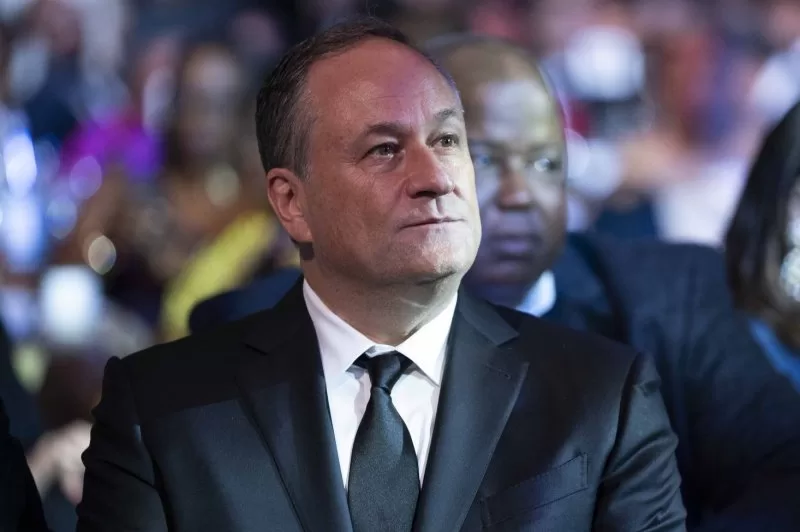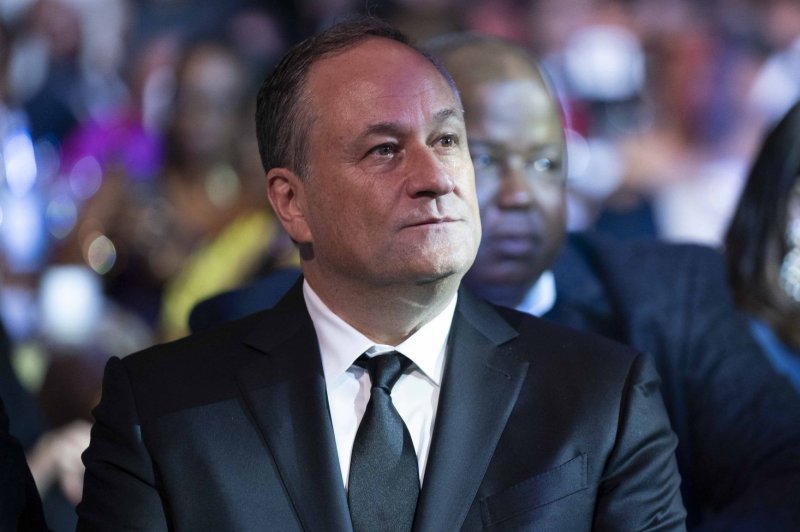Second Gentleman Doug Emhoff will address the White House’s effort to end hunger on Tuesday. File Photo by Bonnie Cash/UPI |
License PhotoFeb. 27 (UPI) — The White House said Tuesday it will make $1.7 billion in commitments for the Biden administration’s campaign to address hunger and build healthier communities around the country.
The White House Challenge to End Hunger and Build Healthy Communities will bring together health networks, elected officials, nonprofits and academic groups, among others, to address issues that contribute to hunger and unhealthy communities.
On Tuesday afternoon, second gentleman Douglas Emhoff lead an event at the White House that highlighted the challenge.
“Today, I’m honored to announce 141 new external commitments, totaling nearly $1.7 billion from a wide range of partners in the public and private sectors,” Emhoff said in a release with his comments.
“We brought together Americans from across the country and worked to enact 60 public and private commitments, totaling over $8 billion, to fight hunger and diet-related diseases,” Emhoff said.
The White House said 14 sports leagues and players associations have signed agreements to expand access to physical activity, integrate messaging around nutrition and support healthier lifestyles.
Some of the new commitments include one with the Harlem Globetrotters, which will lead a public awareness campaign across six cities; hunger and health-related task forces being started in 16 cities, including Houston, Cleveland and Baton Rouge, La.; and nutrition messaging for children from food brand Ahold Delhaize USA.
Other partnerships include Ascension, which will increase workforce access to fresh, affordable produce at its hospital-based markets in 19 states; Blue Cross Blue Shield of North Carolina offering nutrition coaching and healthy food delivery; and Food Forward delivering surplus food to people experiencing food insecurity.
“We know we can’t do this work alone,” Emhoff said Tuesday. “That’s why we’ve brought everyone together again to keep the momentum going.”
The Department of Agriculture, the Food and Drug Administration and the Health and Human Services Department will take part in offering programs specifically to the challenge, as well.
The USDA, for example, will spend nearly $30 million in 264 school districts toward modernizing their operations and improving the nutritional quality of their foods. The FDA will conduct a study to standardize a system for food packaging to help consumers.
HHS will release a document to address social determinants of health that will help federal agencies address unmet community needs and the role housing and education play in hunger and diet-related diseases.

